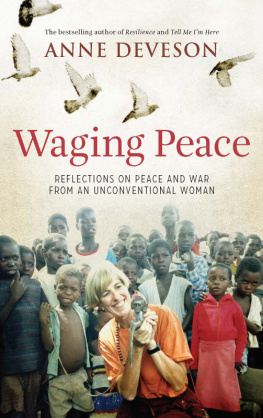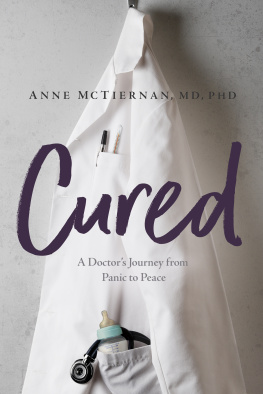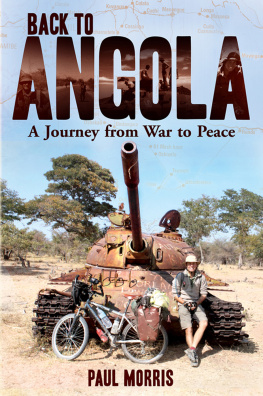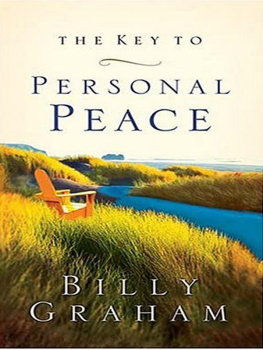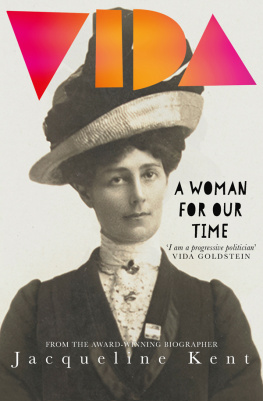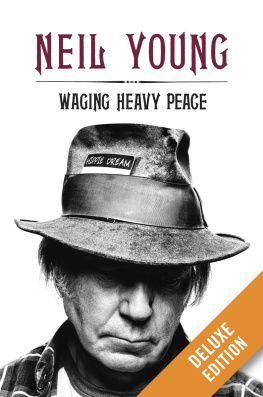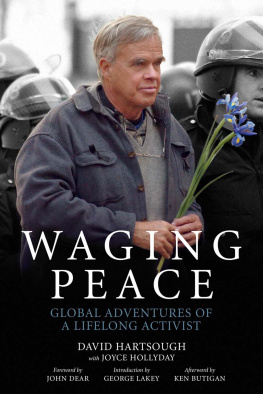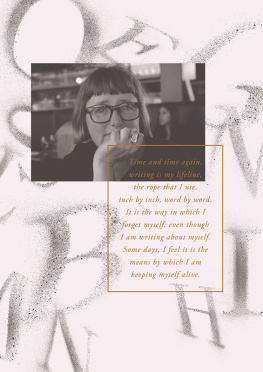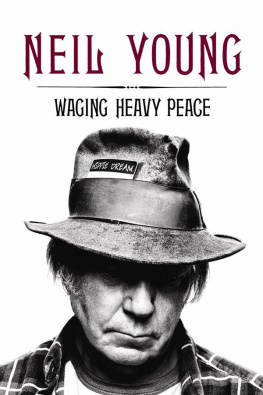
Waging Peace
ANNE DEVESON spent her childhood in Malaya, Australia and England, but for most of her adult life she has lived in Sydney. She is a writer, documentary film-maker and former head of the Australian Film, Television and Radio School, with a long involvement in social justice.
Through her television and radio work, her books and articles, and her role with numerous organisations and boards, she has illuminated many social issues and influenced a wide range of policy. Her films have won three UN Peace awards and her books have been widely praised. They include the bestselling Tell Me Im Hereabout her sons struggles with schizophreniawhich won the 1992 Human Rights Award for non-fiction and was shortlisted in five major literary awards. Another bestseller, Resilience, weaves together research and reflection into a thought-provoking intellectual and personal story.
Anne was made an officer of the Order of Australia for her work in community health and for increasing public awareness of schizophrenia.
Anne Deveson has been the proud mother of three children, four stepchildren, three grandchildren, and a big gathering of step and step step grandchildren. She has a large yellow dog, four orange goldfish, a colourful garden and walls full of pictures and books. Her elder son Jonathan died in his early twenties, and still feels part of her family. She has many staunch and loving friends for whom she will always be grateful.
Waging Peace
Reflections on peace and war from an
unconventional woman
ANNE DEVESON

Published by Allen & Unwin in 2013
Copyright Anne Deveson 2013
All rights reserved. No part of this book may be reproduced or transmitted in any form or by any means, electronic or mechanical, including photocopying, recording or by any information storage and retrieval system, without prior permission in writing from the publisher. The Australian Copyright Act 1968 (the Act) allows a maximum of one chapter or 10 per cent of this book, whichever is the greater, to be photocopied by any educational institution for its educational purposes provided that the educational institution (or body that administers it) has given a remuneration notice to Copyright Agency Limited (CAL) under the Act.

Allen & Unwin
83 Alexander Street
Crows Nest NSW 2065
Australia
Phone: (61 2) 8425 0100
Email: info@allenandunwin.com
Web: www.allenandunwin.com
Cataloguing-in-Publication details are available
from the National Library of Australia
www.trove.nla.gov.au
ISBN 978 1 74331 003 8
Internal design by Emily ONeill
Set in 12/17 pt Minion Pro by Bookhouse, Sydney
Printed and bound in Australia by Griffin Press
10 9 8 7 6 5 4 3 2 1

For my much loved grandchildren:
Bronte, Brodie and Odessa Blain
Live life generously, learn well, be kind
Contents
Wars and conflicts are not inevitable. They are caused by human beings. There are always interests that are furthered by war. Therefore those who have power and influence can also stop them.
Peace is a question of will. All conflicts can be settled, and there are no excuses for allowing them to become eternal. It is simply intolerable that violent conflicts defy resolution for decades causing immeasurable suffering, and preventing economic and social development... we should not accept any excuses from those in power.
Martti Ahtisaari, Nobel Peace Prize acceptance speech,
Oslo, 10 December 2008
From the beginning, this book became a journey that drew on history and memory as I asked the question, In a long life, what have I learned about peace?
I grew up with war. War as a child in an English village, when German bombs began falling from the skies. War as my mother, brother and I fled England to join my father in Malaya, arriving not long before its invasion by the Japanese. War when my father was missing, believed killed, and we became refugees in Australia. And war when we were repatriated to a devastated England where we struggled to rebuild our lives.
I was fifteen years old, and war horrified me: the deaths of our closest friends, the devastation of London, the disappearance of my father, and the numbers of starving people sleeping rough on the streets. Looking back, I believe this is why I became a journalist. I needed to make sense of the world in which I lived. Its a story that begins in my childhood, winds its way through my life as a writer and film-makerfilming war in search of peaceand pursues my belief that, in spite of humanitys history of violence, there is an awakening of global accountability for keeping the peace, a shift in human consciousness that wasnt around when I was young.
Anne Deveson
January 2013
I
Encountering War
1
Growing Up with War
3 September 1939
A CHILDS VIEW OF WAR
A day that comes back to me in small disturbing memories: the clatter of my mothers ivory cigarette holder falling to the floor; my brother John diving to retrieve it and making nervous jokes; my mothers fingers drumming on the table top; and all four of us gathered together, my mother, our nurse, my brother and I, gazing intently at the round black mouth of our wireless. For a moment, I think it might leap in the air and swallow me.
The wireless normally crouches on the dresser in among all the usual detritus of family lifeold bus tickets and timetables, blunt pencils, broken pens, rubber bands and cough mixture.
My mother is still wearing the clothes in which she arrived. Shed heard a rumour that war might be declared and had travelled all night in a taxi from Edinburgh to our home in the south of England, fearing for our safety.
She lights a cigarette and tells us we must be quiet because the prime minister of England, Neville Chamberlain, is about to speak. She doesnt want to miss anything. His voice crackles through statican old, tired voice, saying that the British government had given Germany until 11 am to withdraw their troops from Poland. No such undertaking had been received. Consequently Britain was at war with Germany.
May God bless you all, the prime minister says.
My mother lights another cigarette. Id rather God saved us than blessed us.
But whats he saving us from? I wail.
My brother grins. From being killed.
I start chewing my hair. John is three years older than I am, and likes to tease me.
Outside, our garden is still serenely beautiful. Autumn leaves turning yellow, late-bloom pink roses, and apple trees heavy with fruit. My mother reaches out to hold our hands. Well be all right.
That night my brother entered my room and sat on my bed.
War will mean eating nothing but bread and dripping, he said with studied indifference.
I like dripping, I said smugly.
At that moment, a strong gust of wind tossed branches of a big pine tree against my bedroom window. The tree looked as if it wanted to come inside. I shivered, suddenly scared. I was nine years old, and I wanted the war to go away. All I knew was that we had dug an underground shelter in our back garden, put up blackout for our windows and tried on gasmasks that made us look like invaders from outer space. What I couldnt yet know was that this would be a war lasting almost six years and involving three-quarters of the worlds population. Over 63 million people would die and many more would be injured.
Next page
